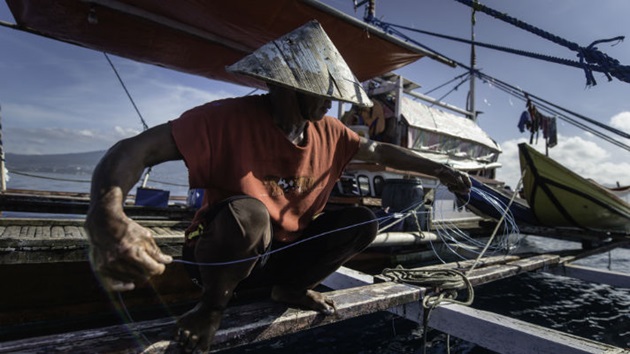WWF South Africa and the South African albacore tuna pole and line fishery
Amount awarded: £50,000
This project is supporting the South African Albacore tuna pole and line fishery to meet the MSC Fisheries Standard by developing well defined harvest control rules. These will allow the fishery to respond effectively to any future changes in stock levels.
The fishery mainly operates off the south and west coasts around Cape Town and up to the Namibian border. Fishers use bamboo poles with a wire leader attached and unbarbed hooks to catch and haul albacore tuna.
While the pole and line method means very little bycatch, there are concerns around the stock status of tuna. Accidental capture of endangered seabirds within the fishery also needs to be monitored.
Together with WWF-South Africa the fishery has successfully set up a fishery improvement project (FIP), forming a project steering committee involving:
- Department of Environment, Forestry and Fisheries (DEFF)
- Fishery representatives
- International Pole and Line Foundation
- BirdLife South Africa
- WWF-SA
Its progress is verified through the In-Transition to MSC program which makes it eligible to apply for Ocean Stewardship Funding.
The fishery is also supported through Fish For Good which is a four-year project aimed at guiding fisheries in South Africa, Indonesia and Mexico towards more sustainable fishing practices.
Cross sector collaboration and action
Action teams have been devised to investigate effective harvest control rules and fishery management plans.
Harvest control rules already in place with tuna Regional Fisheries Management Organisations (RFMOs) will help inform the southern Atlantic albacore tuna stock. An effective fishery management plan will help protect the long-term health of the stock and ensure each stakeholder fulfils their commitments.
A fishery observer team was appointed at the end of 2020. This means the fishery will have a clear monitoring system in place to collect catch information at-sea. This data will be needed to assess the fishery against the MSC Fisheries Standard.
A review of endangered, threatened and protected (ETP) species that may interact with the fishery is also being completed. This will help the fishery develop better ways to avoid harming such species.“South Africa operates in ecologically important marine ecosystems considered to have high levels of marine biodiversity at risk. This project charters an important step in safeguarding these important marine ecosystems while securing livelihoods for South African fishers.”
WWF South Africa

